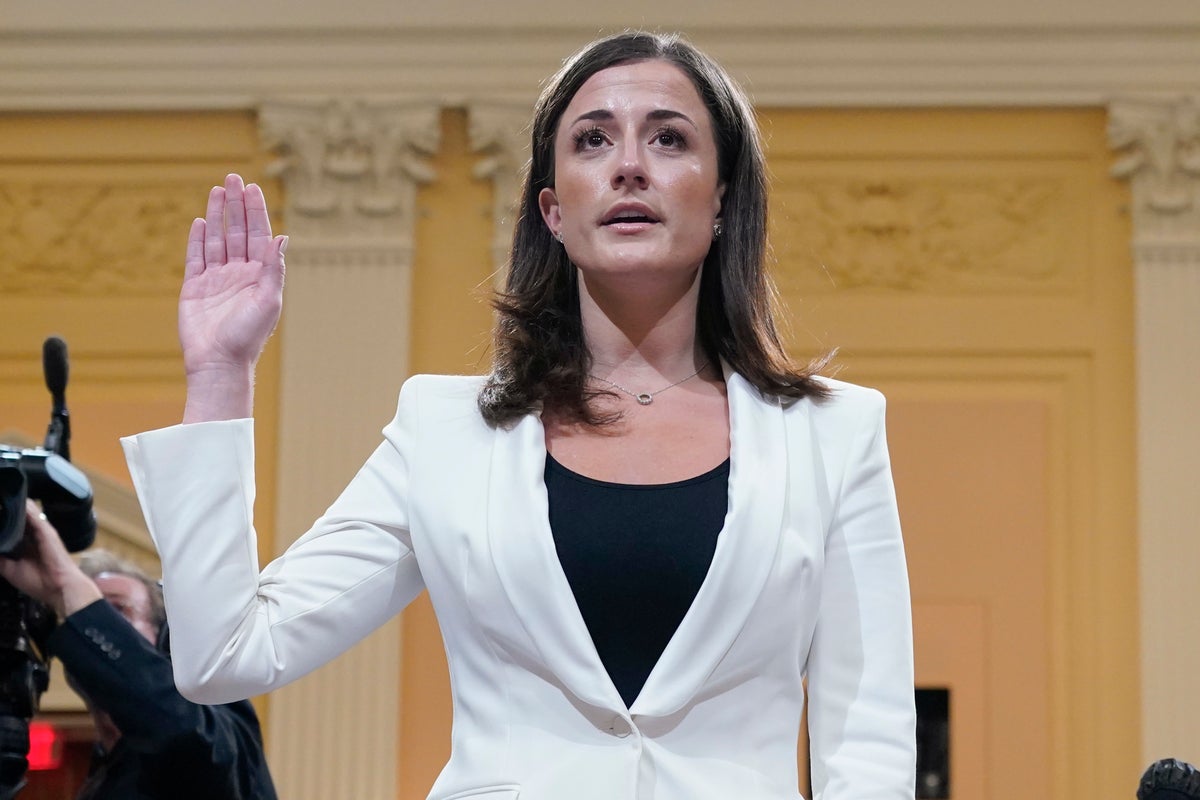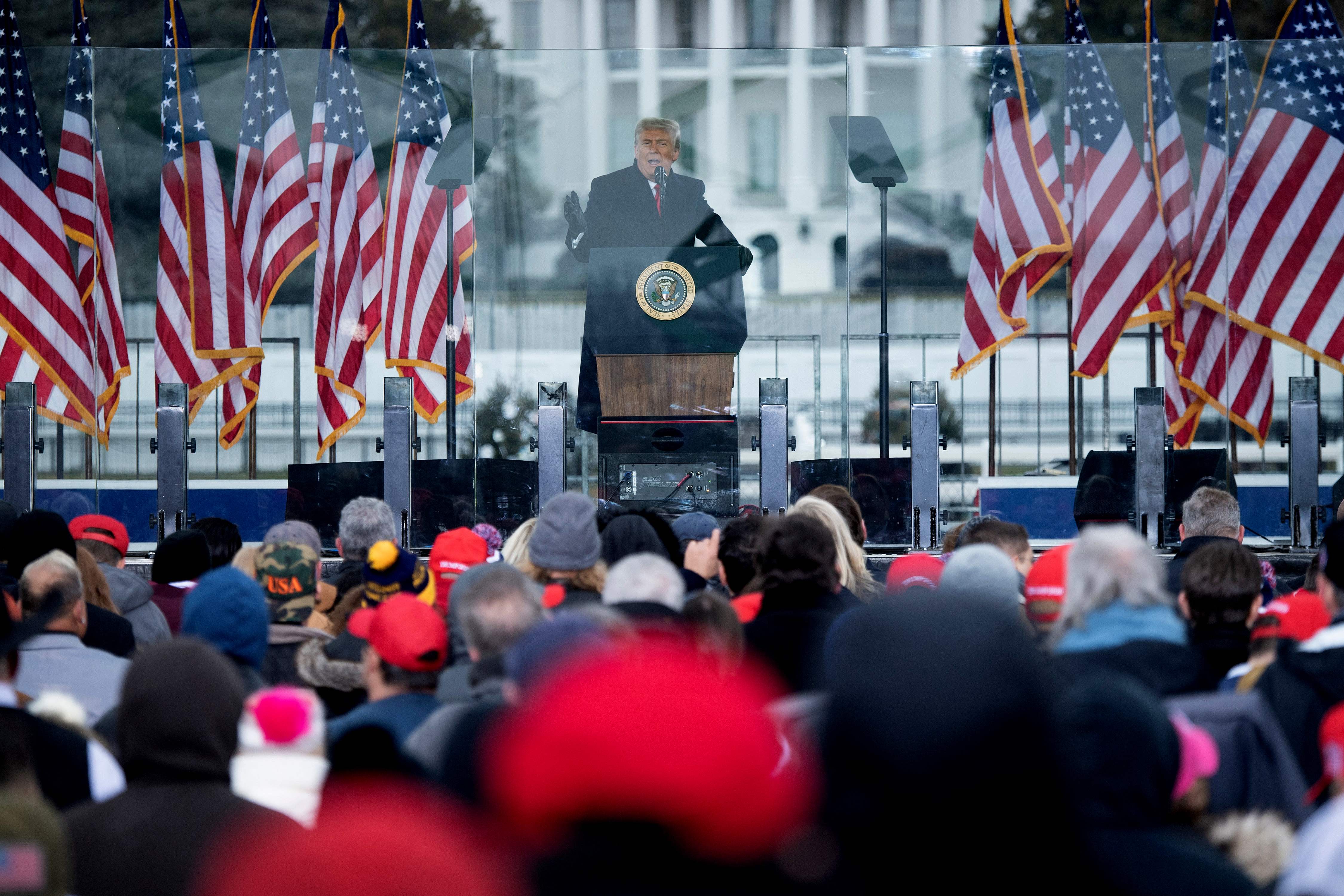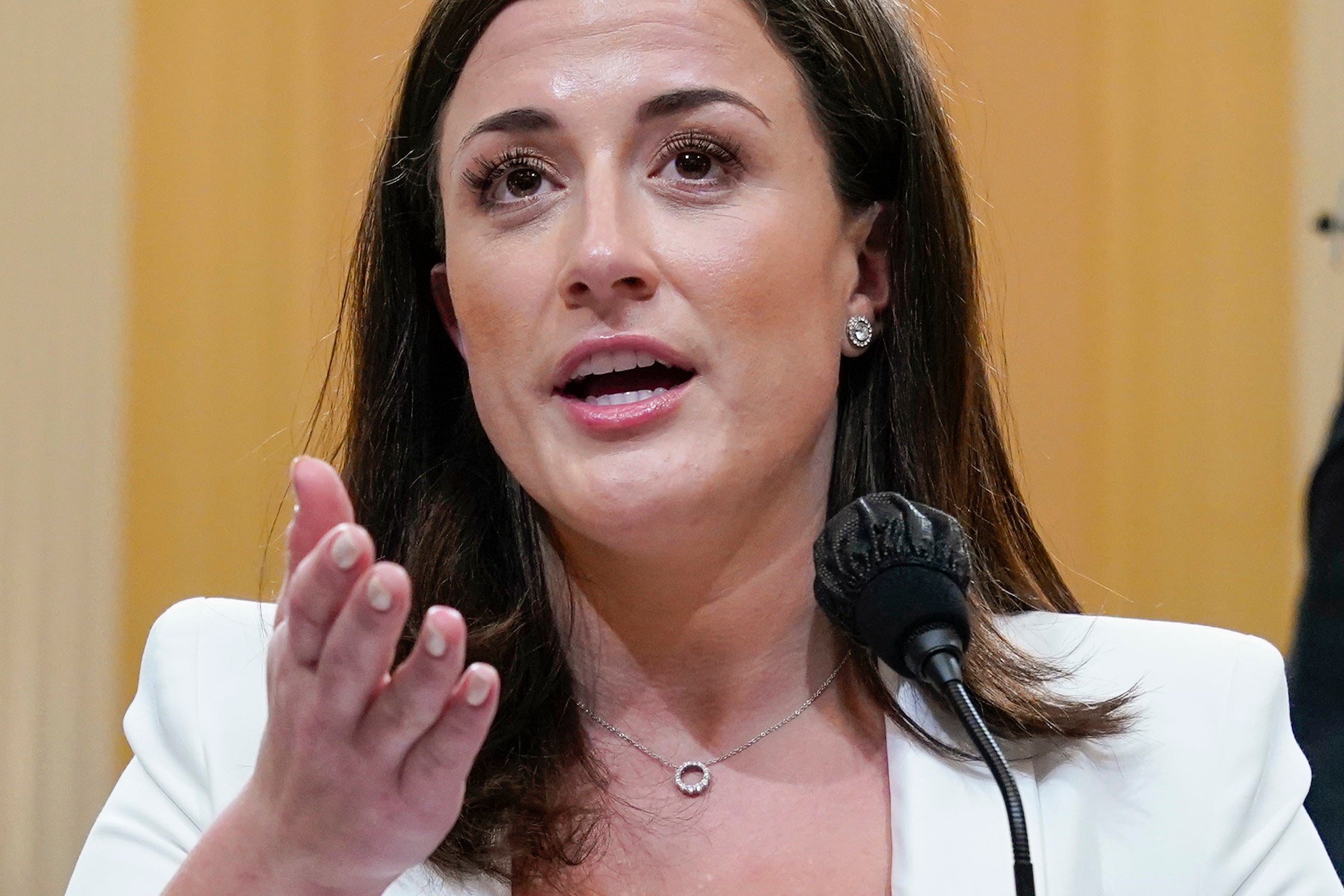
Former president Donald Trump has been the subject of a criminal investigation by the Manhattan District Attorney’s office, two impeachment inquiries led by House Democrats, and a two-year special counsel probe led by a legendary former director of the Federal Bureau of Investigation. His eponymous real estate company, the Trump Organization, currently awaits trial on tax fraud charges, and more than a few of his former close associates have spent time in federal prison for things done while in his employ.
But after each one, the former president has emerged unscathed, often claiming that the lack of consequences for him means he has been exonerated.
His response to facing the scrutiny of any governmental authority has been remarkably consistent. No matter the subject under investigation, he describes it as a “witch hunt”, tells his followers that the investigators are biased against him and convinces himself that the results, no matter how much wrongdoing might come to light, are illegitimate.
But more than 18 months after a mob of his supporters stormed the US Capitol at his urging, Mr Trump’s luck may have run out, after a Tuesday hearing of the House January 6 select committee. During that hearing, a 25-year-old former assistant to one of Mr Trump’s closest White House aides unloaded bombshell after bombshell about what he and his closest aides were saying and doing before the violent riot.
The ex-White House aide’s testimony provided the select committee, and the millions watching the televised proceedings, with the most detailed account to date of how Mr Trump and his top aides conducted themselves before and during the pro-Trump melee.
The stunning revelations from Ms Hutchinson included: Mr Trump grabbed the steering wheel of his presidential limousine in an effort to go to the Capitol to join his supporters; Mr Trump’s chief of staff warned that things could get “real, real bad” on January 6; Mr Trump threw his lunch against the wall when his then-attorney general, Bill Barr, knocked down claims of mass voter fraud in the 2020 election; and members of Mr Trump’s inner circle sought pardons after the violence.
Though Mr Trump and his Republican Party allies have tried poking holes in the testimony delivered by his former aide, legal experts say several of the more explosive moments she recounted during her appearance before the panel could be enough to finally open the gates for legal consequences.
Perhaps the most serious allegation laid out in the ex-Trump aide’s statements to the panel dealt with Mr Trump’s reaction to the security cordon set up around the Ellipse, the green space south of the White House where he spoke on the day of the riot.
At the site of any public appearance by a current or former president, the Secret Service generally erects an outer perimeter which no one may pass without being scanned by magnetometers, or airport-style metal detectors.

On January 6, the agency had good reason to screen rally attendees carefully. The select committee released audio taken from Secret Service and DC Metropolitan Police Department radio traffic which revealed that officers spotted multiple Trump supporters packing weapons (in violation of DC law) including Glock pistols and AR-15-style rifles.
Under normal circumstances, any unauthorised person carrying a weapon wouldn’t get anywhere near a president. But Ms Hutchinson told the select committee that Mr Trump angrily demanded that they stop screening rally goers for weapons.
“When we were in the offstage tent … I was in the vicinity of a conversation where I overheard the president say something to the effect of, ‘I don‘t care that they have weapons, they are not here to hurt me, take the [f**king magnetometers] away, let the people in, ... they’re not here to hurt me. Take the [f**king] mags away. Let my people in. They can march to the Capitol from here,” she said, recalling Mr Trump’s outburst upon seeing large numbers of people being kept out of the sterile zone near the rally stage.

The former Trump aide also said her supervisor, Mr Meadows, was unconcerned by reports that the Secret Service had become aware of people carrying weapons — firearms and melee weapons such as spears fashioned from flagpoles — in the vicinity of the White House.
In the wake of the Capitol attack, Republicans defended Mr Trump from his second impeachment by arguing that the crowd who stormed the Capitol was unarmed and stressing that Mr Trump had not encouraged them to riot. But Ms Hutchinson’s testimony contradicts both those well-worn defences.
Nick Akerman, a former assistant US attorney who spent time working in the Southern District of New York and as a Watergate special prosecutor, told The Independent that Ms Hutchinson’s testimony had made Mr Trump’s responsibility for the violence “pretty clear” and said the ex-Trump aide had provided leads that could go towards indictments on multiple federal charges.
“You got everything from sedition to obstructing Congress to defrauding the United States,” he said.
Mr Akerman described the revelation of Mr Trump’s reaction to the magnetometers being used to keep armed supporters away from him as a smoking gun that puts his speech that day in a much different light.
He said the fact that Mr Trump knew his supporters were armed negates any First Amendment-based defence he could mount.
“If he was speaking to a group of AARP members ... standing there on their walkers, it would be one thing. But instead, he knew he was speaking to a group of people that had AR-15s, Glocks and other weapons ... and that they were going up to the Capitol, and he knew that they weren't gunning for him that they were gunning for somebody else,” he said. “And who is that somebody else other than people in Congress?”
“From a prosecutor standpoint, it opens up the fact that yes, there were multiple crimes,” he added.
One of the attorneys who defended Mr Trump during the two-year investigation led by former FBI director Robert Mueller, Ty Cobb, said a probe into the former president’s actions would be far different than that previous Justice Department effort.
Mr Cobb regarded the Mueller probe into Mr Trump’s alleged ties to Russia as unnecessary. But in an interview with CNN he said a probe of what the former president did before and during the Capitol attack would be a different matter.
"Here there are many damning facts," said Mr Cobb, who also singled out Ms Hutchinson’s testimony about Mr Trump’s knowledge that the crowd was armed as being especially damaging to his former client, as well as his alleged approval of rioters’ calls to hang then-vice president Mike Pence.
If such an act "isn't insurrection, I don't know what is," he added.
Another ex-federal prosecutor, Thompson Coburn partner Renato Mariotti, also said Mr Hutchinson’s testimony makes it all the more likely that Mr Trump will face criminal charges.
Writing on Twitter, Mr Mariotti described the ex-Trump White House aide’s evidence as “actually mov[ing] the ball forward significantly towards a potential DOJ prosecution of” the former president.
“What makes [her] testimony different is that it included damning testimony that gives us a window into Trump’s state of mind that would be admissible in court against Trump,” he said.
He, too, singled out Mr Trump’s alleged remark about getting rid of the magnetometers as incredibly damaging to any attempt to claim the former president’s call for supporters to march to the Capitol was First Amendment-protected speech.
“Testimony that Trump said he didn’t ‘f-ing care that they have weapons ... they’re not here to hurt me’ and that they would be going to the Capitol later is precisely the sort of ‘smoking gun’ evidence needed to prove that the person speaking meant to incite imminent violence,” he said. “Hutchinson's testimony is a game changer. Until now, what I saw was potential narrow criminal charges against crooked lawyers, now it looks like an otherwise unlikely incitement prosecution is possible”.







